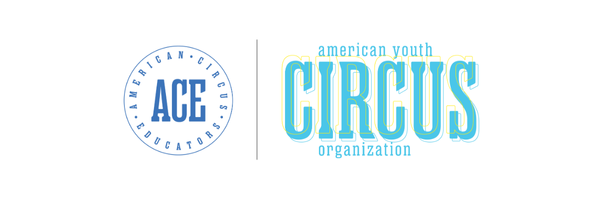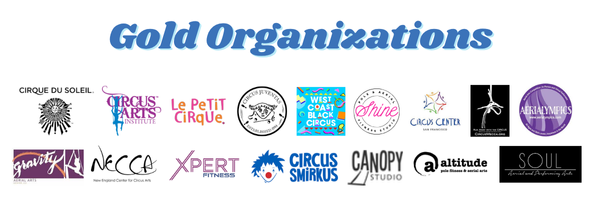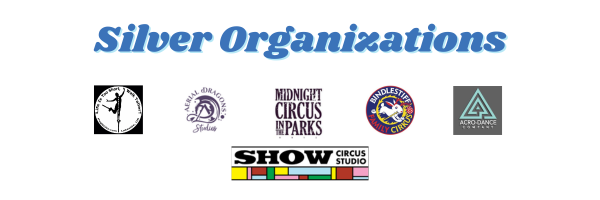What’s After Youth Circus If You Don’t Go Pro?
What’s After Youth Circus
If You Don’t Go Pro?
|| AYCOfest 2019 Discussion||
By Jen Agans, Ph.D.
While many youth circus participants dream of professional circus careers, it’s not the path for everyone. Take me for example: As a teen I knew I loved circus but I wanted to pursue a more academic path. When my friends went to circus school, I maintained my connection to circus by coaching at a circus camp during summer breaks and joining my college’s juggling club. I slowly realized that circus education was another way to work professionally in the circus world, but by that time I was already becoming a researcher and studying the role of youth programs (like circus!) in healthy adolescent development. In my current position as a faculty member in the department of Recreation, Park, and Tourism Management at the Pennsylvania State University, I am also recognizing the benefits of circus as recreation for people of all ages—just because you might age out of a youth circus program doesn’t mean you have to choose between pursuing a performing career and quitting circus all together.
I led a workshop to bring this topic of discussion to attendees at this year’s AYCO Festival and see what current circus youth, parents, and educators think about it. We had some fascinating discussions. Here are just some of the ideas and dilemmas that arose:
How do we pursue non-performance but circus-related careers?
Some participants in my workshop were interested in staying in the circus world, just not as a performer, and others wanted to talk about back-up plans and alternate career options in case of injury. In this discussion, we focused on looking at circus from different angles, including rigging, lighting, stage/artistic direction, costuming, set design, choreography, sound, physiotherapy, medicine, psychology, stunt work, journalism, photography, and circus education careers. There’s so much more that goes into circus than what is seen in the ring or on stage!
In addition, a very thoughtful group of circus youth came up with the following list of ways to stay involved in circus without focusing on a performance career:
- Choose a career related to circus or sports, such as physical therapy
- Travel with a circus as a doctor or other non-performing job
- Go into dance or sports
- Have a non-circus job and also perform at smaller shows rather than touring
- Find (or start!) a club or community group for circus
- Work in tech, lighting, or music
- Stop doing circus (not ideal, but realistically an option)
- Be a board member of a circus organization
- Start a circus school
- Train by yourself or take classes
- Busk / street perform
- Coach at a camp or a circus school, or work at birthday parties
Can circus skills be translated into other careers?
We also had an interesting set of conversations about how circus skills can be thought of as career skills. Specifically, there were some industries in which workshop attendees could see circus skills being highly relevant, including teaching, consulting, theatre, military, industrial (especially involving rigging, or being a lineman), science (especially anatomy or physics), marketing, outdoor recreation, and medicine (especially occupational therapy or physical therapy). We also discussed characteristics like being dependable and working well in a team that would be useful in any career. Youth circus participants thinking about non-circus careers should remember to highlight these interpersonal skills when applying to jobs and not think that their circus experience is irrelevant.
What do we do about aging out?
Some circus programs only serve people of certain ages, which makes things difficult when a young person “ages out” or gets too old to participate in their program. Youth in these types of programs commented that there was not a lot of support for this transition, which is something I would urge program directors to consider changing. In fact, even participants in programs that serve all ages noted that they might move away from their program to go to college or for a job, and therefore could use transitional support from their programs as well. Although some youth noted that their programs give teen participants training and opportunities to coach, they were still unclear about how to translate that experience into a career once they reached adulthood. A possible solution for this issue, raised by youth in the workshops, was for circus programs to hold a “career night” where coaches and staff talk about their own careers and how they got to where they are now.
The youth noted that most of the coaches in their programs are not full-time circus teachers, but that they have little knowledge about their coaches’ other jobs or what training is required to hold those jobs. In circus programs that serve all ages, a career fair could also include adult circus students, and would help to make the various ways in which circus educators and adult practitioners fit circus into their lives more transparent to youth.
In sum, participants in my workshops had a lot of great ideas about the many ways to stay involved in circus without becoming a professional circus performer. Of course, there could always be more support for these non-performance pathways, and circus educators should consider how discussions about alternate career paths might fit into circus programs. In addition, as circus becomes more available in communities across the country, we are also growing more opportunities for people to engage in circus in a wider variety of ways. If circus is to become, as AYCO founding member Jackie Davis likes to say, “as ubiquitous as soccer,” it will be important to build a culture where recreational participation is encouraged for people of all ages.
Back to ACE MAG 2019: ISSUE 2, VOL. 15


